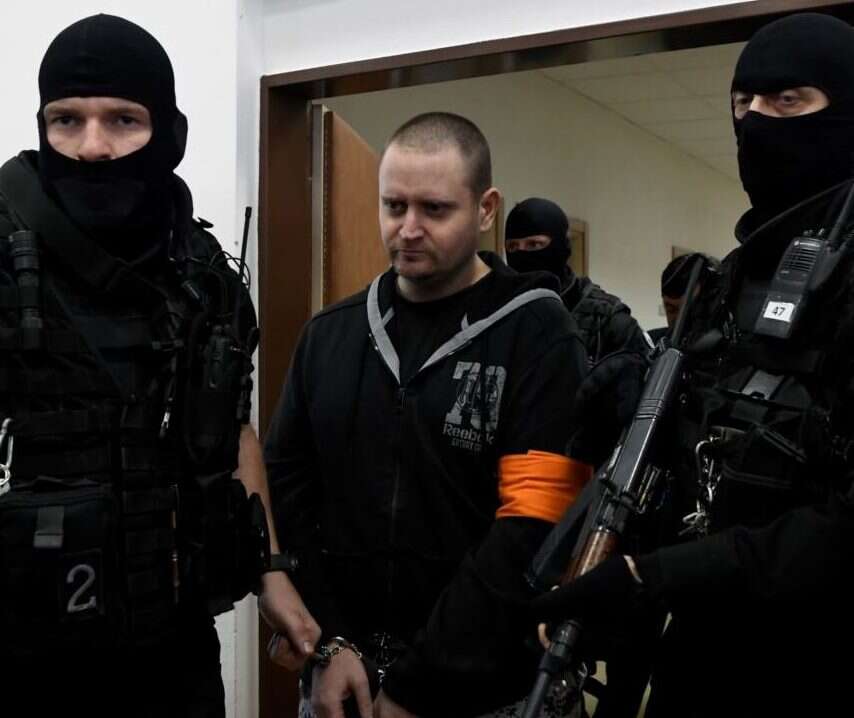
A former soldier has admitted in court to shooting dead Slovakian journalist Jan Kuciak and his fiancée, saying he was hired as a contract killer.
Kuciak was one of three journalists killed within the European Union over 12 months from October 2017 to October 2018, alongside Daphne Caruana Galizia in Malta and Victoria Marinova in Bulgaria.
The 27-year-old’s work as a journalist had led to anti-corruption protests that brought down the government of prime minister Robert Fico.
Miroslav Marcek has said he was hired to hill Kuciak, who he shot dead along with the reporter’s fiancée Martina Kusnirova at their house outside Slovakian capital Bratislava on 21 February 2018, Reuters has reported.
Marcek is one of five people, including a prominent businessman, charged with the couple’s murder. Reuters said they were led into the courtroom in Pezinok, Slovakia, by armed guards wearing balaclavas.
Marcek (pictured) told the court his cousin, former police officer Tomas Szabo, had approached him with an offer to kill Kuciak.
He said he hid outside their house and waited for the chance to attack. “That came when Ms Kusnirova went to the toilet. I hit him (Kuciak) in the chest,” local news website sme.sk quoted Marcek as saying.
The hitman said he killed Kusnirova so that she could not identify him. He told the court he was sorry for his actions and that he had decided to confess after seeing the victims’ families on TV.
A fifth suspect, Zoltan Andrusko, admitted to facilitating the murder and was sentenced to 15 years in prison last month.
Szabo has pleaded not guilty to murder. Slovak media reported that he said he had been approached by Andrusko about beating up Kuciak, but not killing him, Reuters has reported.
A third defendant, Alena Zsuzsova, denied charges of being an intermediary in the killings.
Businessman Marian Kocner is accused of ordering the hit. He denied that charge, but admitted a lesser offence related to illegal ammunition found by police at his house.
Kuciak’s investigative journalism had delved into cases of fraud involving businessmen with political connections.
He had reported on Kocner’s business activities, including the takeover of a television station and property deals.
Fico, his cabinet, and later the national police chief all resigned after the murders sparked Slovakia’s biggest protests since the fall of communism, with crowds calling for an independent investigation and an end to widespread corruption.
Fico continues to lead his Smer party ahead of next month’s parliamentary election in Slovakia.
Lawyer Zuzana Caputova was elected as Slovakia’s first female president in March last year amid public outcry over corruption.
Picture: Reuters/Radovan Stoklasa
Email pged@pressgazette.co.uk to point out mistakes, provide story tips or send in a letter for publication on our "Letters Page" blog
